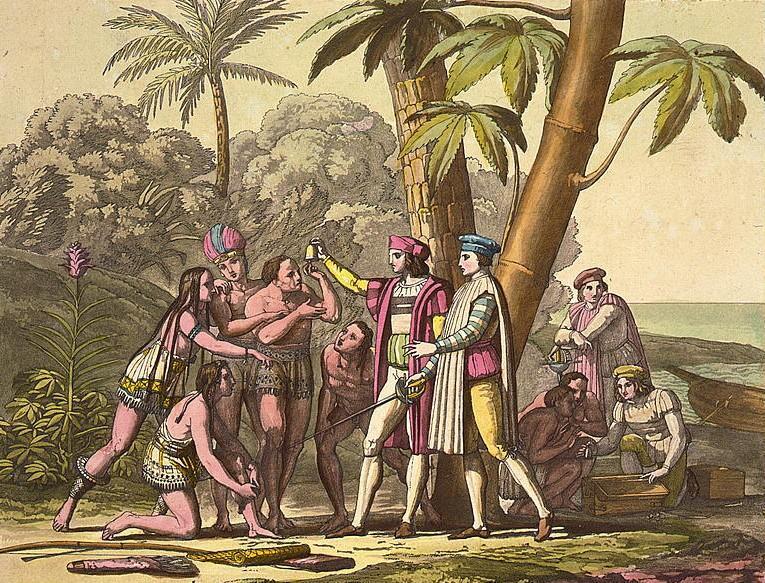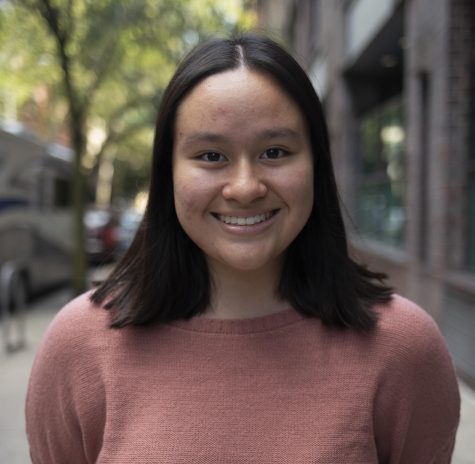NYU Club Celebrates Indigenous Peoples’ Day
NYU’s Native American and Indigenous Student Group held a dinner to celebrate Indigenous People’s Day.
October 10, 2017
One NYU club, the Native American Indigenous Student Group, celebrated Indigenous Peoples’ Day — instead of Columbus Day — and encourages others to follow suit.
Berkeley, California was the first city to observe the holiday in 1991, according to Time Magazine. Since then, some cities and states throughout the country have adopted the holiday and celebrate it along with Columbus Day. Cities such as Denver and Seattle have even gone a step further, officially replacing Columbus Day with Indigenous Peoples’ Day.
Steinhardt senior Cashman Aiu, the social media chair of NYU’s NAISG, believes this paves the way for the recognition of indigenous people and their rights.
“Indigenous Peoples’ Day highlights the languages, cultures and individuals that make up Indigenous communities and shifts the attention away from the colonizer who represents the attempted genocide of Indigenous people,” Aiu said. “We instead choose to celebrate the resilience and strength in Indigenous communities through this settler- colonization conflict.”
GLS senior Taylor Norman, co-President of NAISG, also attested to the marginalization of indigenous peoples in society.
“So often Indigenous people are seen as people of the past, as people who ceased to exist in the aftermath of Columbus and the others like him, but this is far from the truth,” Norman said.
In honor of the holiday, NAISG held a dinner for NYU’s Indigenous students.
“When your existence is resistance, spaces like these are invaluable as they allow you to take a break from the everyday struggle of fighting for recognition,” Norman said.
City-wide organizations, such as Decolonize This Place, also celebrated Indigenous Peoples’ Day with activism and community education.
The group’s second annual Anti-Columbus Day Tour featured a narrated tour of the American Museum of Natural History focused on pushing for the removal of Columbus’ statue and officially replacing his holiday with Indigenous Peoples’ Day.
CAS sophomore Simran Bharadwaj agrees that Indigenous Peoples’ Day deserves more widespread recognition, especially relative to the large-scale observation of Columbus Day.
“Columbus is the reason the Indigenous people were pushed aside and killed,” Bharadwaj said. “It’s more respectful to honor them than him, especially because we’re living in a country that was taken from them.”
Students wishing to show solidarity with Indigenous peoples year round can attend the tour, add the Indigenous Peoples’ Day frame to their Facebook profile picture, use NAISG’s Snapchat filter in Washington Square Park and connect with NAISG on Facebook or Instagram.
Norman encourages students to keep pushing for wider acknowledgement of Indigenous people on campus.
“It is important to keep the pressure on,” she said. “This includes calling for more indigenous courses, for more Indigenous faculty and for Indigenous Peoples’ Day to be officially recognized on the academic Calendar. It is crucial that non-Indigenous students be vocal on these issues while following the lead of Indigenous students.”
She has one final suggestion for allies of the Indigenous community.
“Center Indigenous voices, especially those of Indigenous women,” Norman said. “So often we are drowned out and ignored, but we have so much to share.”
A version of this article appeared in the Tuesday, Oct. 10 print edition. Email Sarah Jackson at [email protected].

























































































































































